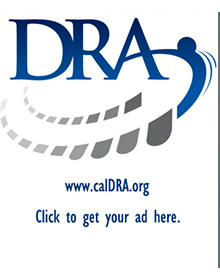- Home
- About
- Join
- Laws & Regs
- CCRR
- Events
- CSR Resources
- Students
- Advertising
- Newsletter
- My Profile
|
Curious about what deposition reporters do? Here is what you need to know.
A common misperception is that deposition reporters, like ourselves, simply and passively take dictation, like the secretaries in “Mad Men.” As any serious litigator will tell you, and as a glance at the many and complex Code of Civil Procedure sections dealing with depositions confirms, that is very wrong. As officers of the court who administer oaths, as the custodians of the record during and after the deposition, and as the only impartial person in the deposition room, we are essential components of our system of administering justice. We are required to manage the deposition – a legal proceeding -- with an aim toward ensuring that it is lawfully conducted as well as accurate. This must all be done under sometimes extraordinarily stressful circumstances, with emotional witnesses, and furious (and often screaming) attorneys jockeying for any advantage, for long hours in private offices outside the presence of a judge. As one California legislative committee correctly observed: “Moreover, the testimony in civil and criminal cases is often thick with technical jargon. A medical malpractice case where specialist experts from both sides contradict one another can involve complex technical medical terminology; criminal cases can involve scientific language related to DNA identification; anti-trust cases can involve diction from economic theory, and so on. No matter how obscure or technical, such jargon must to-the-word accurately be reflected in the written transcript. Court reporters are highly trained professionals who transcribe the words spoken in a wide variety of official legal settings such as court hearings, trials, and other litigation-related proceedings such as depositions.” Moreover, we don’t just show up unprepared. Call a top-notch freelance deposition reporter on the weekend prior to a patent or trademark deposition, and you will discover it is commonplace for them to be busy reading the underlying patents or pleadings to familiarize themselves with the jargon and what the jargon means, all to better ensure the accuracy of transcribed testimony. This mastery of context is how the best deposition officers will know whether one technical chemical compound (for example) is uttered over its similarly-sounding cousin. CalDRA is proud to be the only organization in the nation devoted solely to advancing the interests of these highly trained, essential officers of the court. |


